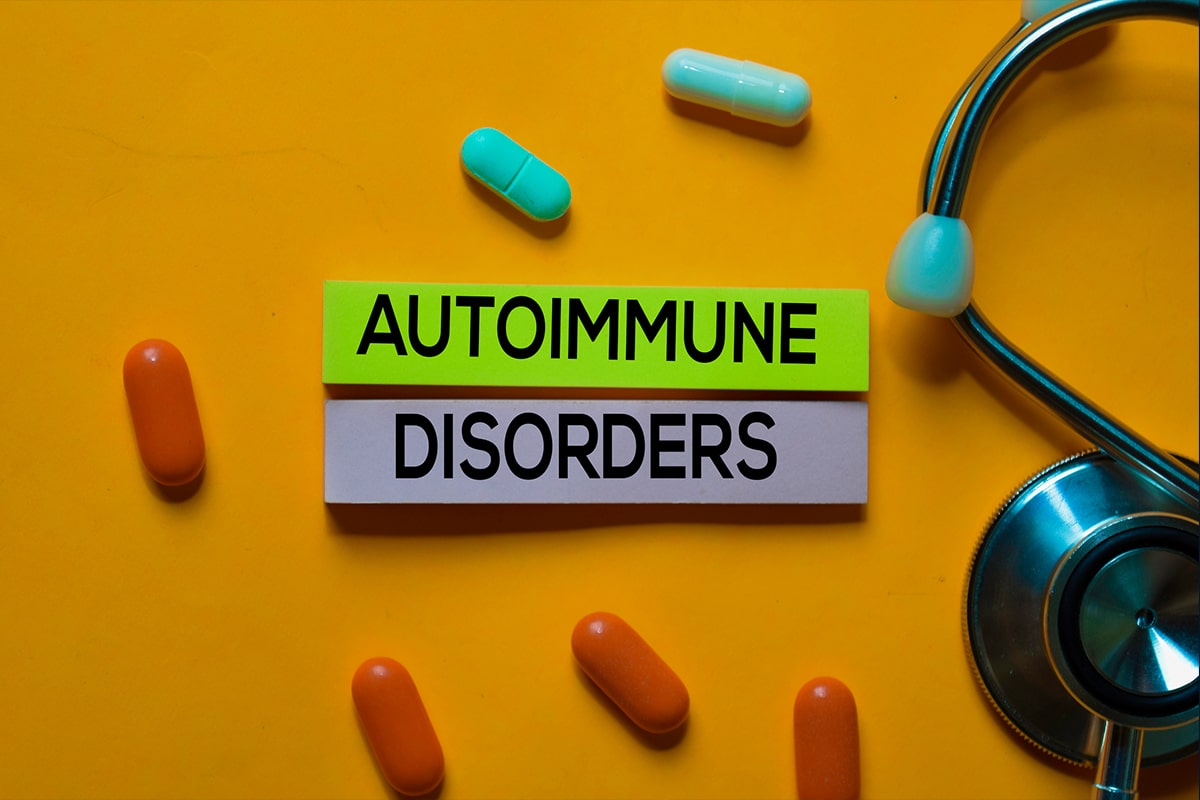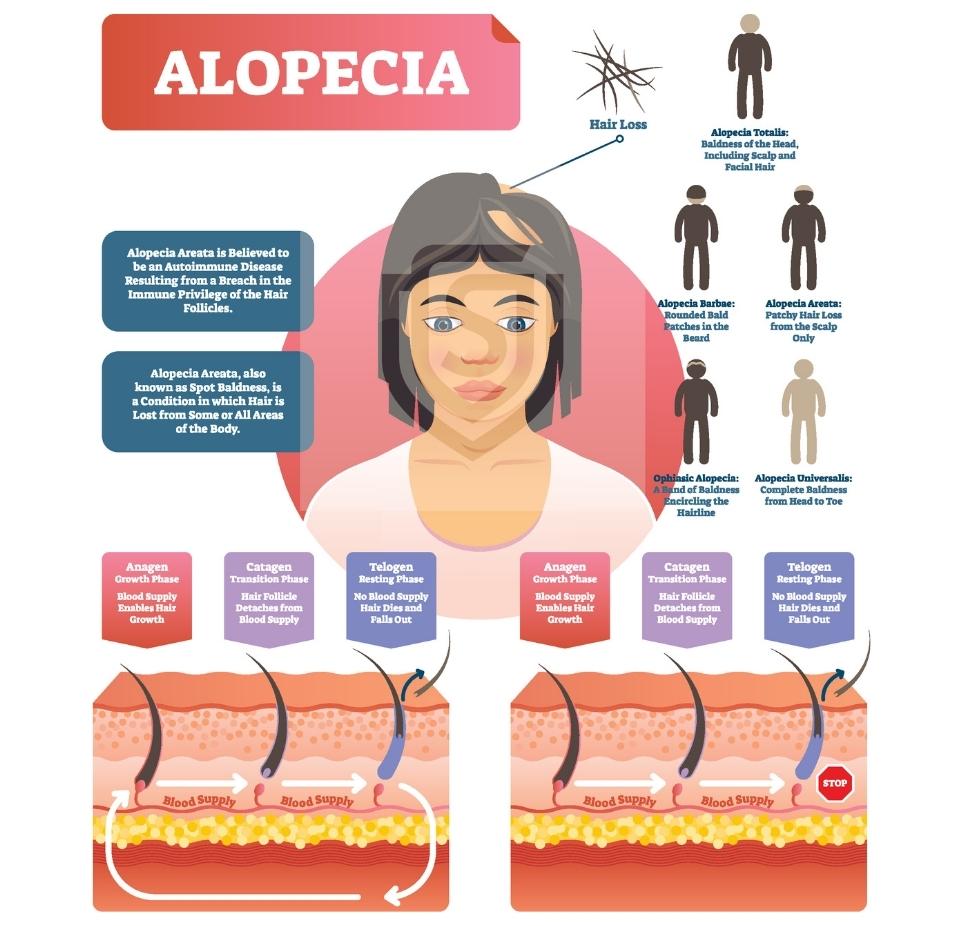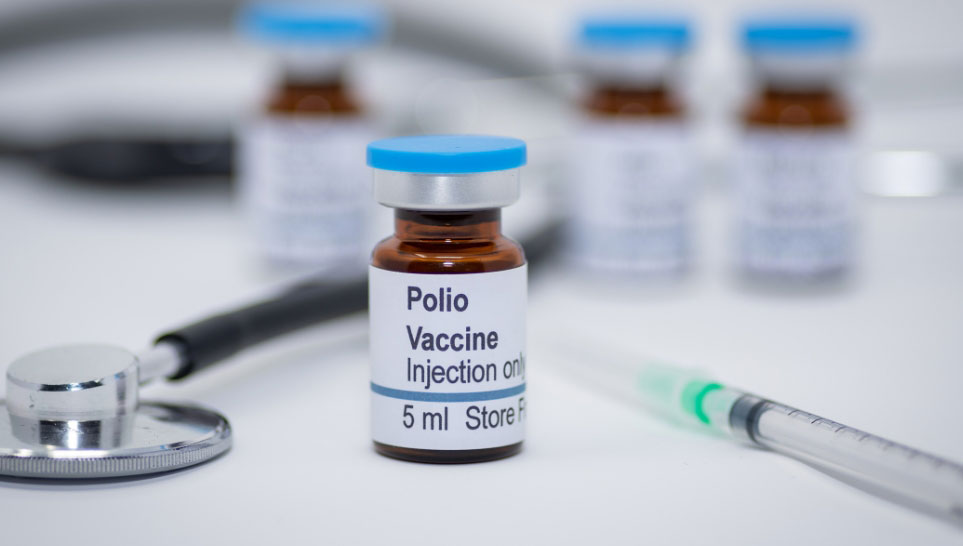
Vaccines can trigger autoimmune diseases.
Millions of Americans have an autoimmune disease. Data from the CDC provides that women are more likely to develop autoimmune diseases than men and once you have one you increase your risk of developing another.
Autoimmunity is a blanket term that applies to any disease where the body attacks itself. Autoimmunity can lead to severe disease. Your diet can increase your chance of developing autoimmune disease. Infections can cause autoimmune diseases. Exposure to toxic chemicals and certain medications can cause autoimmune disease. And yes, even vaccines can cause autoimmune diseases.
Whether vaccines cause autoimmune diseases is a hotly debated topic. Make no mistake, vaccines can cause autoimmune diseases or out-of-control immune responses (autoinflammatory disease).
There is evidence to suggest that vaccines, especially certain types of live-virus vaccines, can trigger autoimmune diseases in some people. One study found that individuals who had been vaccinated for hepatitis B were more likely to develop lupus than those who had not received the vaccine.
Another study looked at HPV vaccination and found that it significantly increased the development of multiple sclerosis (MS) in young women. This suggests that vaccines may be increasing the incidence of autoimmune diseases like MS and lupus.
Of course, there are also many studies showing no link between vaccines and autoimmune disease, and these results should not be ignored either. Overall, more research is needed to understand how vaccines may affect autoimmunity.
Your body’s immune system works in careful balance. Despite tremendous progress, this beautiful system is still not entirely understood. What is known is that the body’s immune system is constantly creating autoimmunity, but the system keeps it in check. Sometimes an immune response to vaccination can throw this system out of whack creating autoimmunity and severe disease.
Autoimmune Disease: Causes & Symptoms
Autoimmune diseases occur when the immune system attacks healthy cells by mistake. An immune response occurs to a foreign substance like bacteria, virus, or vaccine.
The immune system is generally thought of in two parts: innate and adaptive. The innate immune system reacts within mins to hours to a foreign invader. If the innate immune system fails to rid the body of the bacteria, virus, or vaccine then the adaptive immune system will activate.
The detailed workings and interplay of the innate and adaptive immune systems go far beyond the purpose of this article. However, the adaptive immune system’s antibody responses can produce antibodies that attack the body’s healthy tissues. For example, the islet cells in type 1 diabetes or myelin cells in Guillain Barre Syndrome (GBS).
The immune system starts producing antibodies that attack itself instead of protecting the body or fighting viruses. More than 80 types of autoimmune diseases have been identified. The exact cause of autoimmune diseases is still unknown.
One possible cause is that microorganisms or drugs may trigger certain changes that misinform and confuse the immune system. Another theory is that some people have genes that make them susceptible to an autoimmune disorder. Childhood vaccines, including the human papillomavirus and influenza vaccines, have components that can trigger autoimmunity under the right circumstances.
While the symptoms differ between people, autoimmunity may result in severe disease, such as the destruction of healthy body tissues, changes in organ function, and unusual growth of an organ.
Depending on the type of disorder, the disease may affect one or more organs and tissues, including skin, red blood cells, joints, muscles, thyroid, connective tissues, and blood vessels.
Alopecia is an autoimmune disease that can lead to hair loss on the scalp and elsewhere in the body. It can be caused by a variety of things, including autoimmune diseases, medications, infections, hormone imbalances, and stress. While there is no cure for alopecia, there are treatments that can help prevent or slow its progression. Sadaka Law has recovered compensation for people who suffered from alopecia as a result of the quadrivalent human papillomavirus vaccine Gardasil.

Antiphospholipid Syndrome (APS) is a condition that causes blood clots. In APS the immune system creates antibodies that attack phospholipids, or fats called lipids found in cell membranes. The result is excessive clotting, and so APS could also be referred to as thrombophilia.
Autoimmune Hepatitis is an autoimmune disease that affects the liver. Inflammation of the liver can cause damage to the tissue of the organ. In some cases, autoimmune hepatitis can be fatal if not properly addressed and monitored. The Hepatitis b vaccine has been reported associated with cases of autoimmune hepatitis.
Celiac Disease is a chronic autoimmune disease where the ingestion of gluten (a protein found in wheat, barley, and rye) leads to damage to the small intestine. The disease is characterized by a range of gastrointestinal symptoms including abdominal pain, bloating, diarrhea, and constipation as well as malnutrition due to the inability to properly digest food.
Chronic Inflammatory Demyelinating Polyneuropathy (CIDP) is an inflammatory disorder of the peripheral nervous system. It affects both motor and sensory neurons in the peripheral nervous system, causing weakness, numbness, and tingling sensations in the limbs. The disorder can be characterized by relapses (periods when symptoms improve or disappear) and remissions (when symptoms return). There is no known cure for CIDP, but it is treatable with drugs that suppress the immune system such as cyclophosphamide or corticosteroids.
Sadaka Law has recovered compensation for numerous clients who suffered from CIDP as a result of influenza vaccination and other vaccines.
Connective tissue disease is a group of autoimmune diseases that involve your body’s connective tissue. This can include everything from the cartilage in your joints to the fibers that support your skin and organs. Connective tissue disease falls into several different categories, including dermatomyositis, lupus, rheumatoid arthritis, scleroderma, polymyositis, and Sjogren’s syndrome.
Dermatomyositis (DM) or Juvenile dermatomyositis is an inflammatory disease of the muscle, skin, and blood vessels. This condition causes the victim to lose strength, usually when they have an infection. The body attacks the muscles causing profound weakness. Children with JDM can have difficulty getting out of a chair or difficulty turning over in bed. Some JDM sufferers can have severe symptoms including profound weakness or difficulty swallowing. Children often develop a rash or skin changes ranging from mild redness to more severe ulcer formation. Sadaka Law has successfully linked the MMR vaccine to this debilitating condition and was able to get him compensation.
Guillain-Barre Syndrome (GBS) attacks the nerves controlling the muscles in the upper and lower body. The first symptoms are weakness in the muscle joints, followed by the inability to walk or even move. Plasmapheresis, or filtering the blood, is the main treatment for this syndrome.
Hashimoto’s Thyroiditis (HT) is an autoimmune disease that attacks the thyroid. Thyroid production slows and may lead to hypothyroidism. Common symptoms are weight gain, constipation, depression, and fatigue. Consuming daily oral medications restores cell production and normalizes body functions.
Hemolytic Anemia is a condition where the body attacks blood cells that carry oxygen to other parts of the body. People who develop hemolytic anemia experience fatigue, dizziness, weakness, fever, and confusion. They will have dark urine, yellowing of the skin and eyes, an enlarged spleen, and liver.
Inflammatory Bowel Disease (IBD) causes inflammation of the intestinal wall. Two types of IBD that cause inflammation are ulcerative colitis, which affects the colon, and Crohn’s disease, which attacks the gastrointestinal (GI) tract. Oral immune-suppressing drugs can control IBD.
Idiopathic Thrombocytopenia (ITP) or Thrombocytopenia is a disorder in which there are not enough platelets. Platelets are cells in the blood that help the blood clot. This condition is sometimes associated with abnormal bleeding. Thrombocytopenia is often divided into three major causes of low platelets: low production of platelets in the bone marrow; increased breakdown of platelets in the bloodstream (called intravascular); and increased breakdown of platelets in the spleen or liver (called extravascular).
Juvenile inflammatory myopathy is a group of rare, chronic, autoimmune diseases that affect muscle and, to a lesser extent, skin. These conditions are most often diagnosed in children between the ages of two and four years old and are characterized by muscle weakness and inflammation. In some cases, such as dermatomyositis, juvenile inflammatory myopathy can be life-threatening. There is no known cure for this condition, but there are treatments that can help to improve the quality of life for those affected by it.
Some types of juvenile inflammatory myopathy include dermatomyositis, cancer-associated myositis, eosinophilic myositis, focal/nodular myositis, granulomatous myositis, inclusion body myositis, immune-mediated necrotizing myositis, macrophagic myofasciitis, myositis with another connective tissue disease, ocular/orbital myositis, and polymyositis.
Juvenile inflammatory arthritis is a disease that is characterized by chronic and painful inflammation of the joints. Many different conditions fall under this umbrella term, including rheumatoid arthritis, systemic lupus erythematosus (SLE), ankylosing spondylitis, psoriatic arthritis, and juvenile idiopathic arthritis (JIA). Vaccines are one potential environmental factor that has been studied as a cause of juvenile inflammatory arthritis.
Juvenile idiopathic arthritis (JIA) is the most common type of arthritis in kids and teens. About 10% – 20% of children with JIA have a rare and serious subtype called systemic juvenile idiopathic arthritis (SJIA). “Systemic” means it may affect not only the joints but other parts of the body, including the liver, lungs, and heart.
SJIA, sometimes referred to as Still’s disease, can occur any time during childhood, but it most commonly starts at about two years of age. Boys and girls are equally affected. SJIA also differs from other subtypes in that it’s the only one considered an auto-inflammatory rather than an autoimmune disease.
SJIA is a severe disease and can be more challenging to diagnose and treat than other types of juvenile idiopathic arthritis. It is a lifelong disease for many patients and can continue into adulthood.
Lupus or systemic lupus erythematosus is an autoimmune disease caused by inflammation in various parts of the body including the skin, joints, and other organs. Most of those afflicted with the disease are women mostly aged between 15 and 45 years. The symptoms vary from one person to another but are visible a few weeks or months after infection or vaccination because once your immune system begins to attack itself, it takes its time before it is seen on your body. If you have lupus, you might experience unexplained fever, joint pains that worsen at night, and rashes that develop on different parts of your body when exposed to sunlight among others. Sadaka Law has been successful in obtaining compensation for a lupus disease flare as a result of Gardasil.
Macrophagic myofasciitis is an autoimmune condition that affects the muscles. The first sign of MMF is generally muscle pain with chronic, debilitating fatigue. The muscle pain primarily affects the legs and it’s made worse by exertion. Some macrophagic myofasciitis suffers have joint pain and persistent fever. Diagnosis of MMF is based on a surgical biopsy of the deltoid muscle.
Multiple Sclerosis is an autoimmune disease in which the body’s immune system attacks the central nervous system, including the brain and spinal cord. Symptoms can include numbness, weakness, vertigo, tingling, and blackouts. There is currently no cure for multiple sclerosis, but treatments are available to help manage symptoms and slow the progression of the disease.
Neuromyelitis Optica (NMO) is an autoimmune disease that attacks the optic nerves and spinal cord. It can cause severe neurological disability or even death. NMO is often misdiagnosed as multiple sclerosis (MS), but it is a distinct condition with different treatment options.
Opsoclonus-Myoclonus Syndrome (OMS) is a rare inflammatory condition that can be caused by certain types of cancers, infections, and vaccines. It is characterized by rapid, involuntary eye movements (opsoclonus) and jerking muscle movements (myoclonus). In some cases, OMS can also cause behavioral and learning problems. Sadaka Law has been successful in resolving cases of vaccine-caused OMS.
Premature Ovarian Failure (POF) can be caused by autoimmunity that results in early menopause. Sadaka Law has been successful in linking Gardasil to premature ovarian failure.
Reactive Arthritis is an autoimmune disease that results from the immune system attacking healthy joints in response to vaccines, viral, or bacterial infections. Since vaccines cause a strong immune response causing the body will start to produce antibodies against it, this process can go awry leading to an overly aggressive immune response. In some cases, these antibodies can mistakenly attack the host’s own tissues, causing damage that leads to various types of autoimmune diseases.
Rheumatoid Arthritis (RA) is an autoimmune disease where the immune system attacks the joints and connective tissues, which may cause soreness, redness, and stiffness. If left untreated, RA causes permanent joint damage that decreases the patient’s ability to walk and move comfortably. Oral or injectable medications can reduce immune system overactivity and relieve the RA symptoms.
FAQs

Are autoimmune diseases caused by vaccines?
Sadaka Law has been successful in linking several autoimmune diseases to vaccines in the court of law. Generally speaking, the bulk of the scientific community either completely rejects the claim that a vaccine can cause autoimmune diseases or, if they do accept it, the incidence is extremely rare.
Because these diseases are rare, some scientific studies have found a link between vaccines and autoimmune diseases, while other studies have not. When a condition is rare there needs to be a lot of people involved in a study to have the chance to detect a risk between vaccination and the condition.
The most likely scenario is that there is a small increased risk of developing an autoimmune disease after vaccination, but the overall benefit of vaccinating far outweighs this risk.
Vaccines work by protecting us from diseases. They do this by stimulating an immune response to produce antibodies against the disease-causing agent (or pathogen). In some cases, however, the immune response can become overactivated and start attacking our tissues – this is what happens in autoimmune diseases.
What is an autoinflammatory disease?
Autoinflammatory diseases are illnesses that stem from one part of the immune system called the innate immune system. It is generally thought that the immune system has two components, innate and adaptive. The body’s initial reaction to a foreign invader is through the innate immune system then, later on, the adaptive immune system kicks in. So, an autoinflammatory disease is dysfunction or dysregulation of innate immunity. It can be thought of as an out-of-control immune response.
What is the difference between autoimmune and autoinflammatory diseases?
Autoimmunity was used to refer to a condition caused by a dysregulation of adaptive immunity alone, whereas autoinflammatory was originally defined as a consequence of unregulated innate immunity. So, the pathogenetic mechanisms of autoimmune diseases were thought to be mediated by B and T lymphocytes. Whereas, autoinflammatory diseases were defined as unprovoked times of inflammation with the absence of a high titer of autoantibodies.
What is the difference between autoimmune diseases and rheumatic diseases?
Autoimmune diseases are a class of conditions that involve the immune system attacking healthy tissues in the body. Rheumatic diseases, on the other hand, refer to any condition that affects muscles, joints, and bones.
What is an immune response?
The immune response is a complex process that involves the recognition of foreign substances (antigens) by the body’s cells, and the production of antibodies to destroy these antigens. The immune response is the body’s way of protecting itself from infection and disease.
What is molecular mimicry?
Molecular mimicry is the process by which the immune system mistakenly targets self-structures, such as tissues in the body, due to cross-reactivity with bacterial, viral, or vaccine components. This can lead to autoimmunity, where a person’s immune cells attack their tissues and organs. One possible explanation for this is that some of the bacteria and viruses we encounter early in life may inadvertently resemble our tissue structures, leading to an immune reaction against those foreign molecules that also results in an attack on some of our similar molecules. Vaccines may induce molecular mimicry through similar processes of cross-reactivity.
What vaccines cause autoimmune diseases?
Vaccines have been linked to chronic diseases caused by autoimmunity. Sadaka Law alone has linked a host of autoimmune diseases like multiple sclerosis, CIDP, and dermatomyositis to vaccines. The vaccines that caused these conditions to include MMR, the influenza vaccine (flu shot), Gardasil, pneumococcal, and a host of other vaccines.
What are the risks of immune disorders from vaccination?
If you are concerned about yourself or your loved one being vaccinated against hepatitis, flu, MMR, or any other common condition, you might familiarize yourself with potential side effects. While the Center for Disease Control and Prevention (CDC) reports that vaccination is safe, many vaccines are known to have connections with rare but potentially fatal medical conditions.
What should I do if I get a vaccine and now I’m experiencing immune disease?
If you or your loved ones have any symptoms of an autoimmune disorder after vaccination, you may be entitled to compensation under the government’s National Vaccine Injury Compensation Program (VICP). The VICP provides patients an opportunity to obtain no-fault compensation without having to file a traditional lawsuit against a pharmaceutical company or a hospital.
How can Sadaka Law help you?
Our Sadaka Law team combines scientific methodology with legal advocacy to form a case for you. We have experience with pharmaceutical cases and are dedicated to better understanding the situation and creating a unique strategy that will help your case.
Our Sadaka Law vaccine injury lawyers represent numerous clients from around the country. We have the resources and background necessary to handle even the most complex cases.
The first step to helping yourself, a family member, or a friend is to contact us for a free consultation. We will review your case and advise you on your next steps.





